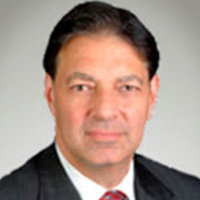West Orange Juvenile Law Lawyer, New Jersey
Sponsored Law Firm
-
 x
x

Click For More Info:
-
Law Office of Mark S. Guralnick
55 Madison Avenue 4th Floor Morristown, NJ 07960» view mapCriminal Defense Law Dedicated. Fearless. Successful.
Mark S. Guralnick and his legal team have helped clients throughout the USA and across the world by applying unparalleled dedication and hard work to each case.
800-399-8371
Blair R. Zwillman
✓ VERIFIEDCriminal, DUI-DWI, Juvenile Law
Blair R. Zwillman has over 40 years of experience with the criminal justice system. After serving as a Law Clerk to Superior Court Judge Joseph M. Thu... (more)
Adrienne D. Edward
✓ VERIFIEDCriminal, Immigration, Divorce & Family Law, Juvenile Law, Accident & Injury
For 25 years, Attorney Adrienne D. Edward has been offering top-notch legal representation to individuals and families throughout New York and New Jer... (more)
FREE CONSULTATION
CONTACTShaka Taylor
Divorce & Family Law, Juvenile Law, Municipal, Traffic, Divorce
Status: In Good Standing Licensed: 35 Years
Dana M. Scarrillo
Traffic, Divorce & Family Law, Juvenile Law, Criminal
Status: In Good Standing Licensed: 27 Years
Christina Previte
Divorce & Family Law, Family Law, Criminal, Juvenile Law
Status: In Good Standing Licensed: 20 Years
FREE CONSULTATION
CONTACTClifford J. Weininger
Juvenile Law, Municipal, Family Law, Criminal, Accident & Injury
Status: In Good Standing
 Mark Guralnick Morristown, NJ
Mark Guralnick Morristown, NJ AboutLaw Office of Mark S. Guralnick
AboutLaw Office of Mark S. Guralnick Practice AreasExpertise
Practice AreasExpertise


